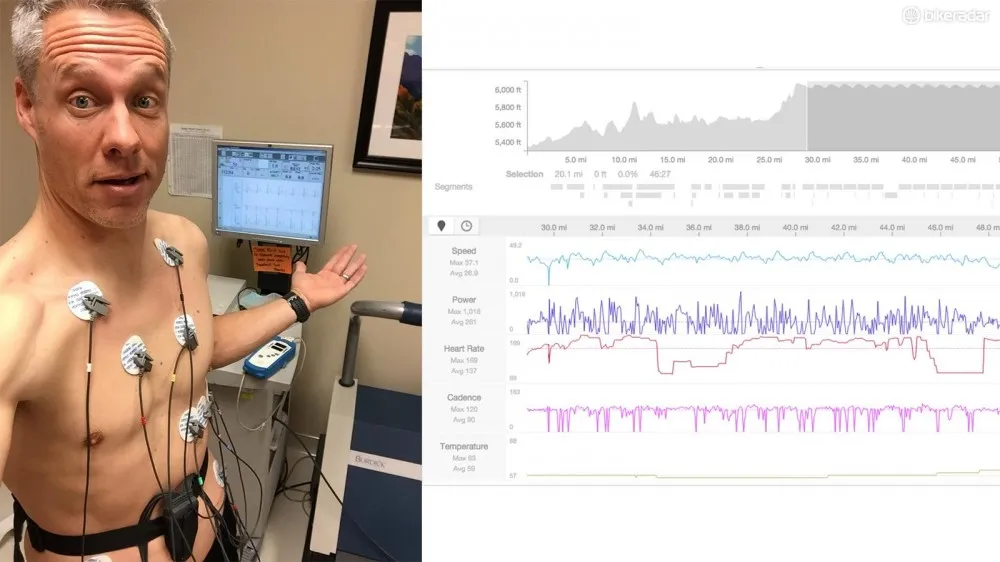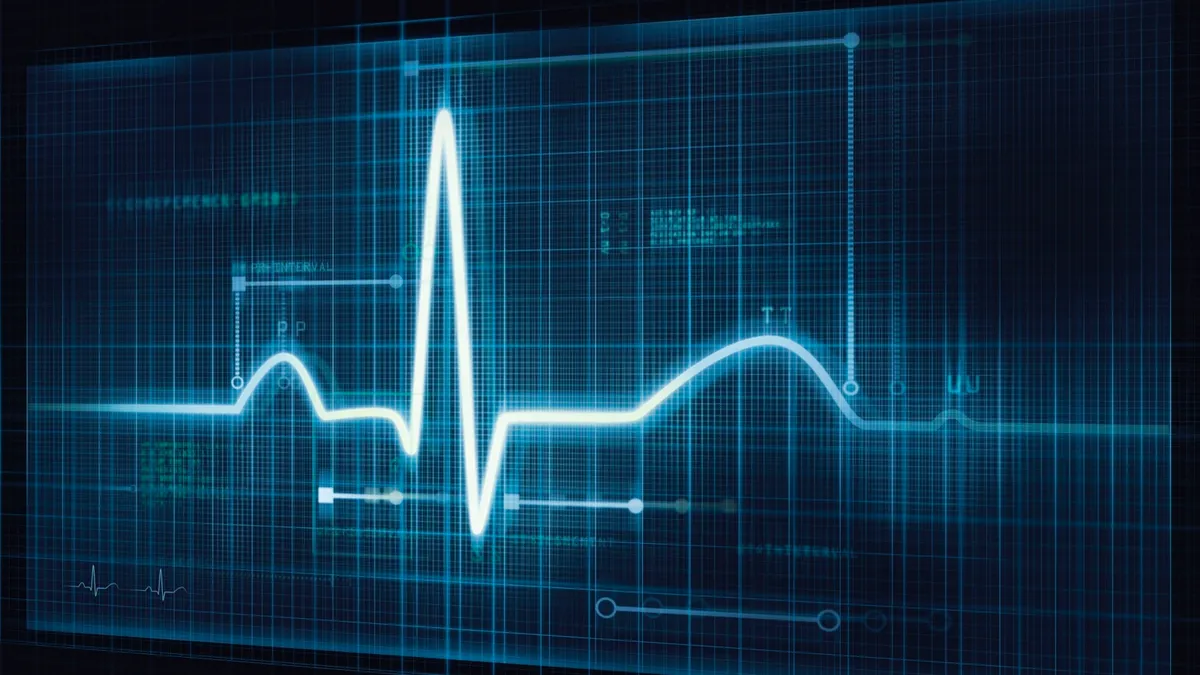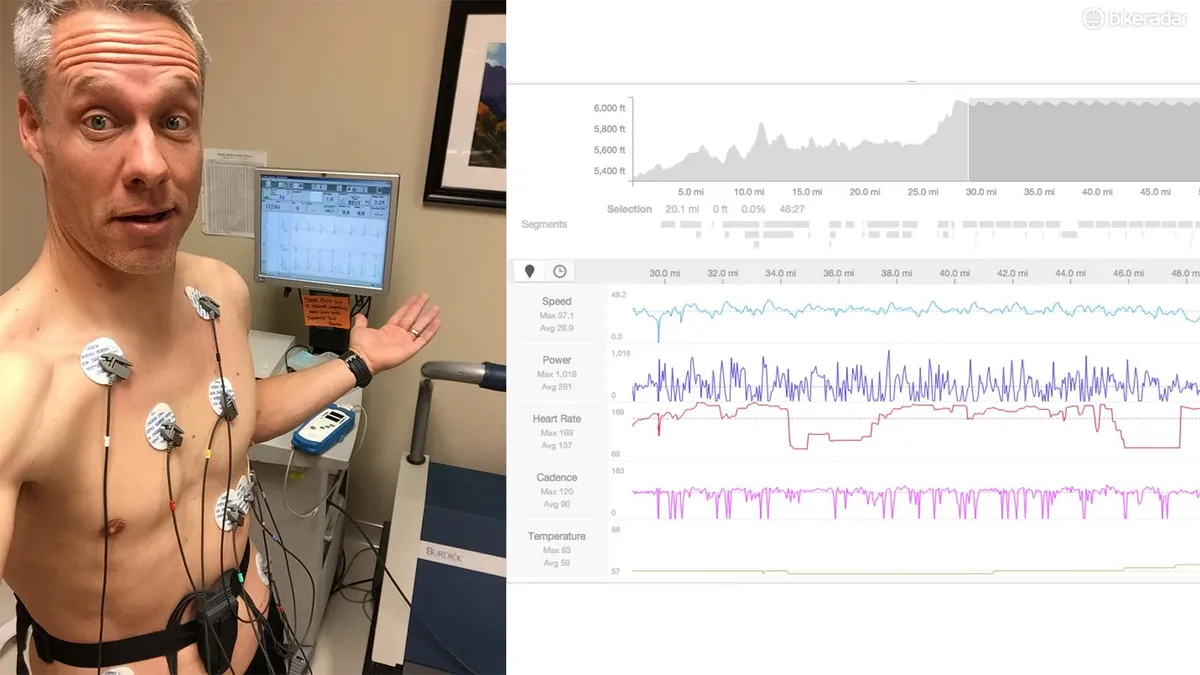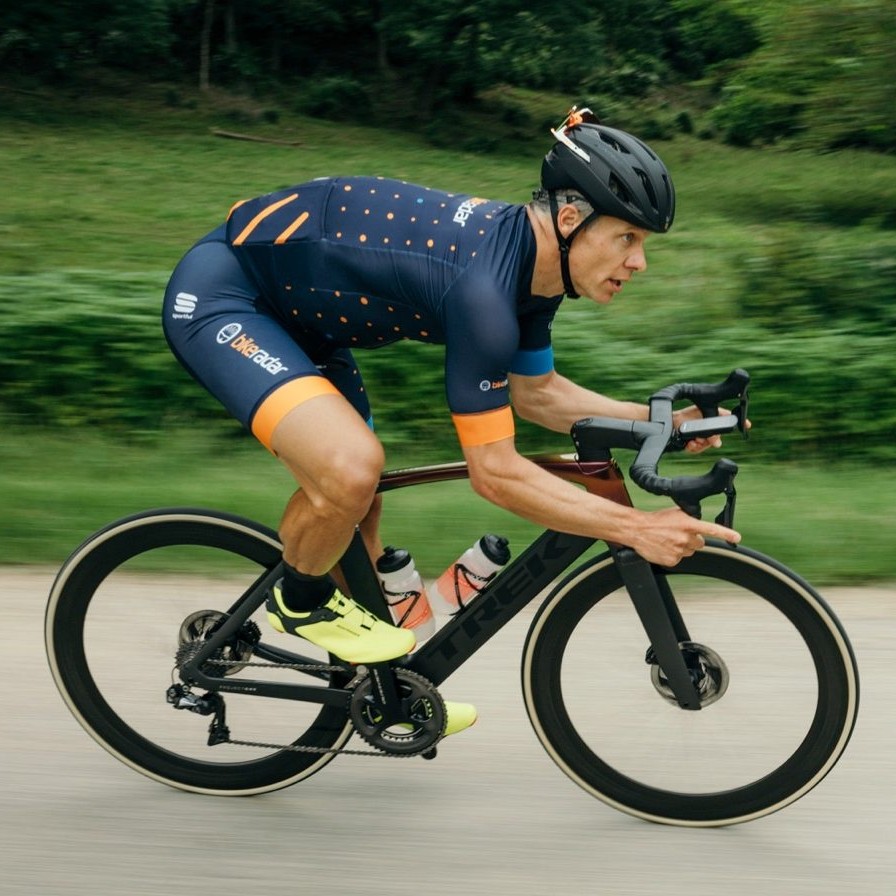Far too many of my riding buddies have diagnosed heart arrhythmias. And now it seems I've joined the ranks of the funky hearts, with a diagnosis of a right-side heart block and a 'severely dilated' left atrium, plus speculation of perhaps a hole between the left and right chambers or maybe something called chronotropic incompetence. Great. And I thought bike riding was a healthy thing. In talking to a few heart doctors, here are a few things I've learned that may be helpful if you're wondering about your heart.
First, the bad news. 'Extreme' endurance athletes, such as those of us who ride a lot, may be at a greater risk for developing atrial fibrillation, which is an irregular, usually high, heart rate that interrupts the normal rhythm. Although this is a debated subject among the experts, cardiac electrophysiologists like Dr. John Mandrola and cardiologists like Dr Lisa Rosenbaum have argued that a number of studies show an association between excessive exercise and abnormal heart rhythms. The million-dollar question, of course, is how much is excessive? There is no clear answer.
What's clear to me is that six guys I ride with or used to ride with have diagnosed heart issues, and I know of more through mutual friends. In most cases they have tachycardia, where sometimes their heart rate will rev up to 180, 190 or even 200bpm when it should be somewhere around 150. VeloNews managing editor Chris Case wrote an eye-opening story about some extreme cases of heart problems in cyclists, centering largely around our friend Lennard Zinn. In the past year I've been experiencing heart rate fluctuations in the other direction, where my heart rate will drop from 150 to 100 or below — while riding hard and steady at or just above threshold power. When I ease off on the pedals, my heart rate will jump back up to where it was.
"Heart rhythm issues are a grab bag," cardiologist Dr. Larry Creswell told me over the phone. "They almost always involve high rhythms, and they can come and go — with exertion in particular. For some it comes and goes. For others, like those with a fib, it can come and stay forever. You are more likely to get that as an endurance athlete than someone who is not."

Seeing unexpected drops in heart rate (in red at right) while riding hard sent the author in for tests with a cardiologist
In light of my friends' experiences, my weird heart-rate drops, combined with chest pain when just hanging out at the house, prompted me to go see a doctor. The first doctor listened to my story, looked at some of my heart-rate and power data from previous rides, and said, "It's probably nothing, but let's do an EKG just in case." When the EKG returned results for a first-degree heart block (which sounds much worse than it is!), he said, "Well, it's probably nothing, but I want a cardiologist to tell you that." So I went to a cardiologist, who effectively said, it's probably nothing, but let's do an ECHO and a treadmill test.
The nurse who did the treadmill test speculated that the low heart rate could be from chronotropic incompetence. (My wife found the incompetent heart thing pretty funny.) And the nurse who did the ECHO, which is an ultrasound of the heart, said my left atrium is severely dilated, which could indicate years of hard riding, or a problem. Or both. Great. So the next step is, you guessed it, yet another test, this time to see if there is a hole, a patent foramen ovale, acting as a pop-off valve between the left and right chambers of the heart. It's probably nothing.
Now, the good news. Heart arrhythmias are fairly common, and, in the grand scheme of things, often nothing. Besides being a cardiac electrophysiologist, Dr. Mandrola is a hardcore cyclist and one who has experienced atrial fibrillation himself. He says there are two general types of heart conditions. "Once someone comes in for medical attention, it becomes pretty easy to put them in a box," Mandrola said. "It's either A, not a big deal, we can work it out at our leisure, or B, holy shit, we need to work at this immediately." The vast majority of us are in box A.
Warning signs to watch for
Dr. Creswell works with endurance athletes regularly, and writes on his own site, athletesheart.org, as well as EnduranceCorner. Here are five things he says deserve attention.
- Pain in the chest — "particularly if it comes and goes with exertion"
- Shortness of breath — "that is unusual for you, not just normal gasping at the end of a hard effort"
- Lightheadedness or blacking out while riding – "not unusual after a race when you stop, but while exerting yourself, that is a serious problem"
- Unexplained fatigue
- Palpitations – "the feeling that your heartbeat is abnormally fast or hard or irregular"
Words of wisdom from cardiologists
So what about heart-rate monitors? When it comes to technology, Mandrola and Creswell disagree a bit on what cyclists should do. Being a nerd myself, I had advocated that my friend Dave wear a heart-rate monitor before he was diagnosed so that he had a quantified record of his experience, not just vague feelings.
Mandrola isn't so keen, and worries that over-analysis can cause people to see problems that aren't there. Mandrola himself has ditched his heart-rate monitor and power meter, and just rides on feel again. Creswell says it can't hurt to have a record, and that he wouldn't recommend that riders pitch their instruments. (Thanks for backing me up there, doc.)
My cardiologist, Dr. Raj Sharma, has pointed out that heart rate alone is just one of many factors at play; there is also stroke volume, which can increase or decrease separately of heart rate. Also, your heart is an amazing thing that is constantly adjusting to demands and conditions. So, just seeing numbers jump around on a heart-rate monitor isn't necessarily something to worry about.
But whatever your indication that something may be out of whack — either a feeling in your chest or a number on your Garmin — an easy way to decrease symptoms could well be to just go easy for a while.
"For so much of these rhythm problems that are occurring, the best treatment is just to back off, and give the body and the heart some time to rest," Mandrola said. "The best way to get out of a hole is to stop digging."
As a rider, Mandrola knows this is easier said than done.
If you are experiencing any of the five symptoms above, it can't hurt to see a doctor. And besides, it's probably nothing.



